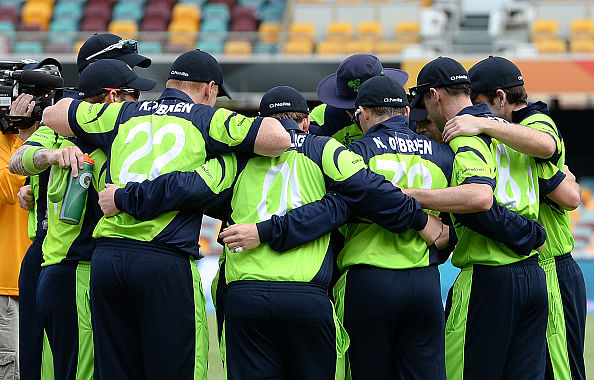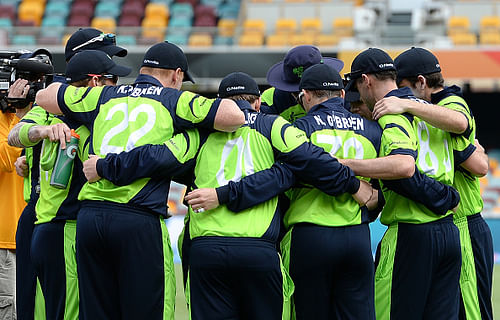
Why cricket's 'minnows' deserve more respect

United Arab Emirates (UAE) and Ireland just finished sparring in a closely contested World Cup match. The match was a see-saw affair that saw both teams holding the upper hand at different junctures.
This World Cup, like its previous versions, has not failed to throw up surprises, and the matches involving the ‘minnows’ have been particularly exciting. Why then is the ICC turning a blind eye to these spirited performances?
The governing body’s decision to cordon off the subsequent World Cup competitions to include just the ‘top’ teams has incurred the wrath of many coaches, cricket writers and indeed, many fans. Whether some teams pick themselves up after defeat and come back strongly is in doubt; the ICC has certainly ensured that.
Its attempt to disregard the associate nations for the previous World Cup itself was squashed due to rampant protests. This time though, that attempt has seemingly reached fruition.
As a fitting riposte to the perpetual shenanigans of the ICC, the ‘minnows’ – the Associate nations, have upped their game and are giving the other ‘established’ and ‘powerhouse’ teams a run for their money.
The ‘minnows’ have proved their mettle
Scotland gave a New Zealand team that was in marauding form an almighty scare before the Black Caps prevailed. Afghanistan proved to Sri Lanka and to the world that they are no pushovers, and that they are in Australia to chase their dreams. The UAE has had two close matches, one against Zimbabwe and the other, the recently concluded thriller against Ireland. Ireland has kept its label as a ‘giant-killer’ alive by seeing off West Indies.
These teams are proving, with great gusto, that they are in Australia with a purpose. They are issuing a reverberating statement that they will not go out without a fight.
Isn’t that what the game is about? Isn’t that what defines the intangible ‘spirit of cricket’?
Players playing as if their lives are at a knife’s edge, not caring much about the stature of the opposition but only keeping the target in their sights; flags flying high, proudly and with abandon; fans assembled by the hundreds, rooted to the action in the middle; raucous, resounding cheers, echoing across the realms of the stadia – isn’t this what cricket is about?
Teams like Kenya and Zimbabwe, which once competed regularly in cricket matches across the globe, have now been reduced to dim shadows of their previous selves. Zimbabwe at least is rising – slowly, albeit definitely – from the horrors of its national conflict. But where is Kenya? Is Kenya one of the game’s collateral losses?
Teams like UAE, Scotland, Ireland, Bangladesh, Kenya and Zimbabwe are all composed of players who are like those from other countries – they have been harbouring deep-seated dreams to play for their national teams. They have strived hard to represent their nations, and their wish is to prove that their nation is not to be treated slightly. So why should these teams get treated with a different flavour?
The ICC hasn’t protected the interests of the Associate nations
If the ICC believes that these teams do not fit in the same ‘bracket’ as the top eight teams, then it is the prime duty of the Council to ensure that these teams play as many matches as possible in a calendar year. While the top teams play matches all through the year, these Associate nations only get to play as many matches as the ‘elite’ teams are in the mood to play.
There has also been talk – seemingly always – about ‘respecting the minnows’. What does this mean? Does respecting the minnows mean letting them off easy? Does respecting the minnows mean not allowing them to give it their all? What does respecting the minnows mean?
First of all, minnows? These teams have proved in this World Cup that if there are teams to be called minnows, then they simply aren’t them. Secondly, respecting these teams would mean letting the other teams give it their all, going at loggerheads, in a match-up against them. That would truly be respecting the opposition.
Why the ICC wants to restrict the World Cup, the marquee competition for the game of cricket, to just the top teams is pretty much an open secret. But the outcry against that ruling has been vociferous enough to convey the message that those who watch the game do want the Associate nations to play at future World Cups.
That should matter too. More than anything else, letting these countries play at the pinnacle stage of the game would be the perfect way to respect them.